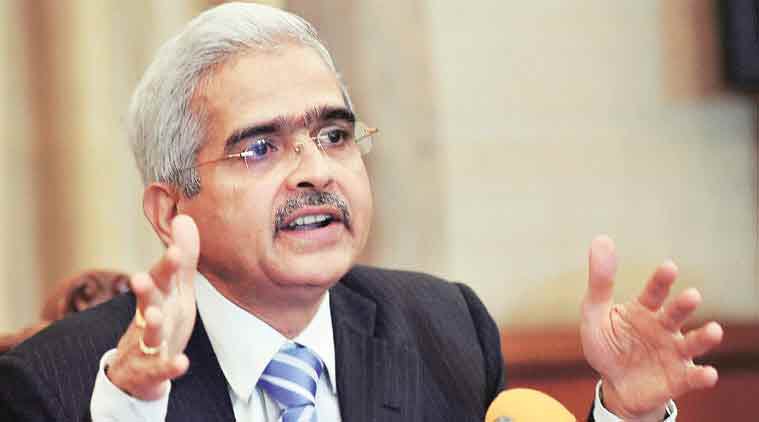
Know the implications of RBI’s decision to keep interest rates unchanged

The Monetary Policy Committee (MPC) of the Reserve Bank of India on Friday (October 8) decided to keep the repo rate unchanged at 4 percent. The reverse repo rate too remains the same at 3.35 percent. Besides, the Marginal Standing Facility (MSF) rate and the Bank Rate are also constant at 4.25 per cent.
As a consequence, the interest rates in the banking system are expected to remain unchanged too. This is for the 8th consecutive time that the Monetary Policy Committee has maintained a status quo in rates. The policy was last revised on May 22, 2020, when interest rates were cut drastically to boost demand in the middle of the first wave of COVID pandemic.
On Friday, Reserve Bank of India (RBI) Governor Shaktikanta Das said the committee continues to take an “accommodative stance” with a clear objective to revive and sustain growth on a long-term basis in view of the impact of COVID-19 on the economy.
Repo and reverse repo rates
Repo rate is the rate at which banks borrow money from the Reserve Bank while reverse repo rate is the rate at which RBI borrows from banks. Commercial banks borrow funds only if they witness a shortfall in their funds. The MPC uses the reverse repo rate as a tool to control the money supply in the country.
What did the RBI Governor say?
Reserve Bank of India (RBI) Governor Shaktikanta Das said the policy stance continues to be “accommodative”.
On dealing with the COVID-induced financial crisis, Das said the apex bank has taken more than 100 measures in response. He said the country is in a much better position than it was during the last MPC meeting.
“As the economy shows signs of recovery, a near-consensus view emerging among market participants and policymakers is that the liquidity conditions emanating from the exceptional measures instituted during the COVID crisis would need to evolve in sync with the macroeconomic developments to preserve financial stability,” Das said.
Market expectations
The MPC’s status quo on interest rates is exactly what the Dalal Street wanted. A section of experts though expected a revised guidance on liquidity as global commodity prices and domestic inflation surge.
Overall, the markets have been bullish in response to the RBI’s dovish policy stance. A rally in IT stocks ahead of the TCS Q2 results also helped boost market sentiment. The BSE Sensex was up 261 points at 59,940 while Nifty50 gained 52 points to 17,841. IT and bank indices were lead gainers in the sectoral space while realty stocks bled.
Inflation pressure
Large disparity in demand-supply balance has hit inflation, which remains a cause for worry for the Centre. It is also believed that consumers haven’t felt the pinch despite high commodity prices throughout last year.
The RBI committee has lowered the inflation forecast for 2021-22 from 5.7 per cent to 5.3 per cent. The inflation is expected to drop for the third quarter of the financial year 2021-22 on the back of anticipated relief in food prices.
The gross domestic product (GDP) growth for the first quarter of the next financial year i.e. 2022-23 is projected at 17.1%. For the current fiscal 2021-22, GDP growth projection is unchanged at 9.5%. “Almost all components of GDP registered year-on-year growth, despite a sharp loss of momentum due to the second wave. Recovery in aggregate demand gathered pace in August-September,” Das said.
Also read: Atop Sensex 60k, stop preening, start diversifying
Giving a positive outlook, Das said growth impulses are strengthening, and inflation trajectory is more favourable than expected. The governor said CPI inflation for the period July to Aug was lower than expected.
“Aggregate demand is improving but slack still remains,” Das said. “Output is still below pre-pandemic level and the recovery remains uneven and dependent upon continued policy support.”
Experts speak
Umesh Revankar, Vice Chairman & MD, Shriram Transport Finance, told moneycontrol.com: “We welcome RBI’s unchanged accommodative stance as long as necessary, commitment to maintaining adequate system liquidity to support growth even as risks to inflation have inched up and core inflation remains sticky.”
Revankar further said: “MSMEs, small businesses, unorganised sector have been worst hit during the pandemic and we welcome the RBI’s continued policy support towards these sectors.”
Vikash Khandelwal, CEO, Eqaro Guarantees, said, “The central bank kept the key rates and policy stance unchanged for the 8th time in a row thus allaying concerns around a possible unwinding or availability of adequate liquidity. The overall recovery especially in the services and the technology-driven sectors coupled with inflation being well within RBI’s comfort levels helped the central bank stay with the current excess levels of system liquidity. This should help boost economic growth.”

